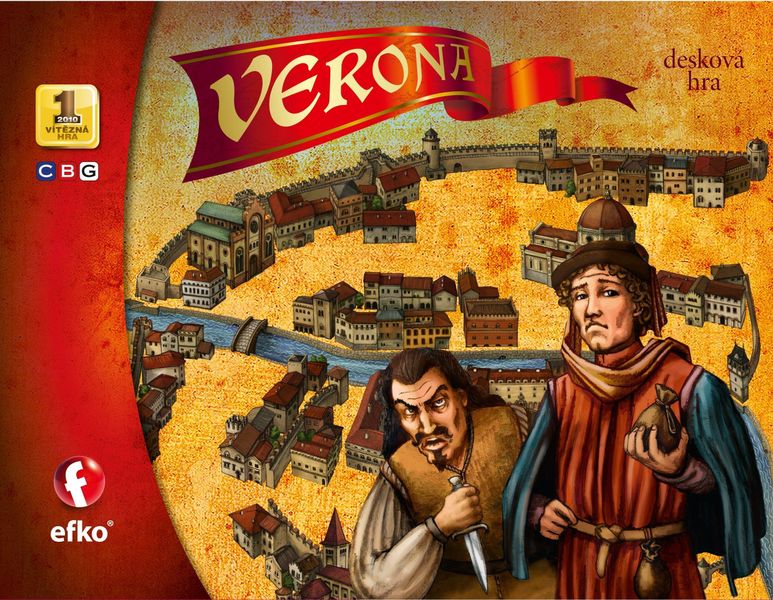Verona (2010) Board Game
Verona is a board game released in 2010, designed by Prokop Smetana and published by Czech Board Games. It is a bluffing and political game set in the Renaissance period, where players compete to gain influence and control over territories in the city of Verona. The game combines elements of area majority/influence and auction/bidding mechanisms, making it strategic and engaging for 2-5 players.
Game Components of Verona
How To Setup Verona
To set up Verona, each player selects a player board and receives a set of influence tokens and character cards. The game area is divided into different zones where players will place their influence tokens. The character cards are shuffled and a certain number are drawn, depending on the number of players. The auction/bidding tokens are placed within reach of all players. The objective is to influence the various zones in Verona by strategically bidding and placing influence tokens.
Gameplay Mechanics and Game Objective
Player Experience
Playing Verona involves a mix of strategic planning and social interaction. Players must carefully manage their resources, bids, and influence tokens to outmaneuver their opponents. The bluffing element adds a layer of complexity, as players need to balance revealing their true intentions with misleading their opponents.
Pros
Cons
Personal Thoughts on Verona
**Verona** is ideal for those who enjoy strategic games with a strong social component. It’s a great fit for fans of bluffing and auction mechanics, and it offers a unique blend of area control and influence management. However, due to its complexity and longer playing time, it may not be the best choice for casual or younger players. For those who appreciate deeper strategy and are willing to invest time in learning the game, **Verona** can be a highly rewarding experience.
We are supported by our audience. When you purchase through links on our site, we may earn an affiliate commission, at no extra cost for you. Learn more.

